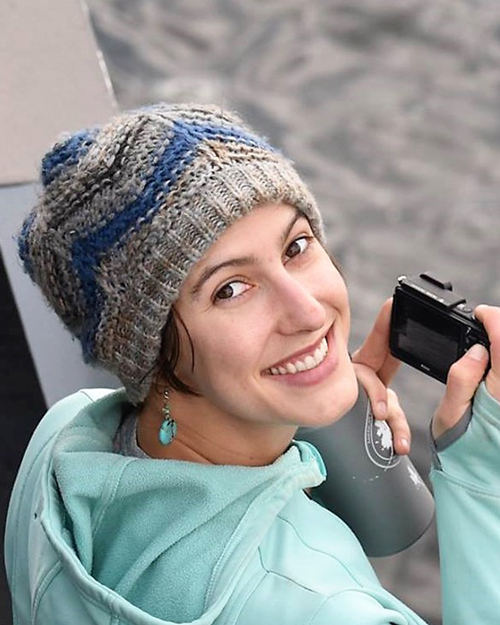
Elizabeth Hinkle
Ph.D. Student
Fisheries
2120 Koyukuk Drive
214A Irving I
Fairbanks, AK 99775-7220
ehinkle2@alaska.edu
M.S. Biology
2018
Texas A&M University–Corpus Christi
B.S. Biology, B.A. Philosophy
2013
The effects of wildfire on freshwater streams in interior Alaska
- Jeff Falke
My experience in fisheries started during my undergrad at Texas A&M University–Corpus Christi, where I worked as a technician studying population genetics of Indo-Pacific gobies. After graduation, I moved to Alaska to work as a shellfish observer on the Bering Sea. Putting scientific theory into practice was thrilling and I was committed to getting more experience. The following three summers, I worked as a fisheries technician for the Alaska Department of Fish and Game and became determined to have a larger role in fisheries research. In 2018, I completed my M.S. at the University of Texas at Tyler studying the host fish and life history characteristics of endangered freshwater mussels. Inspired by a combination of astounding mentors, encouraging peers, and the deeper ecological aspect of fisheries, I decided to seek a doctorate at UAF. In summer 2018, I relocated to Fairbanks and began my Ph.D. with Jeff Falke, researching the effect of wildfire on freshwater ecosystems.
Hinkle, E., and N.B. Ford. Accepted. Reproductive traits of North American cajun dwarf crayfish (Cambarellus shufeldtii) from the Neches River National Wildlife Refuge. Southwestern Naturalist.
- freshwater ecology
- freshwater fish
- wildfire
- macroinvertebrates
During my M.S., I studied the life-history characteristics and suitable host fish of a state-listed Unionid mussel, Louisiana pigtoe (Pleurobema riddellii). I found an inverse relationship between female egg production and discharge levels, and genetically determined the black-tailed shiner (Cyprinella venusta) to be suitable as a host fish. As a side project, I also studied the relationship between female body size and egg production of the Cajun dwarf crayfish (Cambarellus shufeldtii). I determined a positive relationship between female body size and number of eggs. For my Ph.D. dissertation, I study the effects of wildfire on freshwater ecosystems. In summer 2019 I quantified the long-term effects of fire on habitat, fish and macroinvertebrate assemblages, and food-web structure. My 2020–2021 research is focused on studying Arctic grayling (Thymallus arcticus) physiological and behavioral response to wildfire in the interior.
- EPSCoR Student Seed Grant, Macroinvertebrate response to wildfire in the boreal forest, fall 2019
- Second Place Oral Presentation Award, Lyceum at University of Texas at Tyler, spring 2018
- Texas Academy of Science Graduate Research Grant, Life-history characteristics of freshwater mussels, spring 2017
- National Science Foundation Research Grant, Population structure of Indo-Pacific gobies, spring 2010
- Big Brothers Big Sisters volunteer, 2018 to present
- Biologists of Tyler Texas officer 2016–2018
- Corpus Christi Literacy Council volunteer 2010–2013



